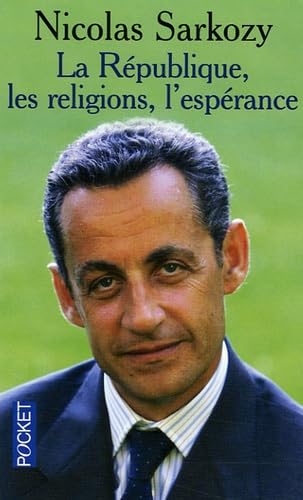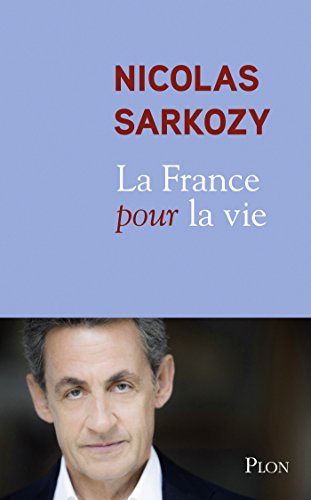How Nicolas Sarkozy built a successful career. Explore key moments that defined the journey.
Nicolas Sarkozy served as President of France from 2007 to 2012. A prominent figure in French politics, his presidency was marked by a pro-business agenda, reforms to the labor market, and a tough stance on immigration and crime. He played a key role in handling the Eurozone crisis and intervening militarily in Libya. Since leaving office, he has faced legal challenges and convictions related to campaign finance irregularities and corruption, which have significantly impacted his public image and legacy.
1945: Policy Announcements Post-Rioting
Following the rioting, Sarkozy announced policy changes in 1945, focusing on immigrant selection, greater tracking of immigrants, and reform of justice measures for young delinquents.
1973: Resolution 1973 adopted by the Security Council of the United Nations
On 17 March 2011, resolution 1973 was adopted by the Security Council of the United Nations, permitting the creation of a "no fly" zone over Libya, and for the undertaking of "necessary measures" for the protection of the country's civilian population. This was done at the behest of France.
May 2003: Foundation of the French Council of the Muslim Faith
In May 2003, Sarkozy supported the foundation of the Conseil français du culte musulman (French Council of the Muslim Faith), a private non-profit organization intended to represent French Muslims and provide a legitimate body to engage with the French government.
2004: Sarkozy co-authors book on religion and the Republic
In 2004, Nicolas Sarkozy co-authored the book, "La République, les religions, l'espérance," in which he advocated for government subsidies for mosques and a reduced separation of church and state.
June 2005: Sarkozy's comments in La Courneuve
In June 2005, in La Courneuve, following the death of a boy in gang crossfire, Nicolas Sarkozy said "on va nettoyer au Kärcher la cité" ("we will clean the area with a pressure washer").
June 2005: Sarkozy questions Minister of Justice
On 22 June 2005 Nicolas Sarkozy told law enforcement officials that he had questioned the Minister of Justice about the future of "the judge" who had freed a man on parole who had later committed a murder.
September 2005: Sarkozy accused of pushing for hasty inquiry
In September 2005, Nicolas Sarkozy was accused of pushing for a hasty inquiry into an arson attack on a police station in Pau, of which the alleged perpetrators were acquitted for lack of proof.
September 2005: Call for Radical Changes in Economic and Social Policies
Throughout September 2005, Sarkozy advocated for radical changes in France's economic and social policies, culminating in an interview with Le Monde where he claimed the French had been misled for 30 years.
October 2005: Police raid leads to riots
In October 2005, a police 'raid' on the suburb of Clichy-sous-Bois, during Nicolas Sarkozy's tenure as Minister of the Interior, led to two boys being electrocuted in a power sub-station, sparking riots.
2005: Support of the European Constitution Referendum
In 2005, Sarkozy, then president of UMP, supported a "yes" vote in the French referendum on the European Constitution; however, the "No" vote ultimately won.
2006: Involvement in the DADVSI Bill
In 2006, Sarkozy intervened in the debate over the controversial DADVSI bill, which reformed French copyright law. He organized meetings and was later alleged to have unofficially supported amendments that enacted strong penalties against designers of peer-to-peer systems.
January 2007: UMP Presidential Candidate
In January 2007, Sarkozy was chosen as the UMP candidate for the 2007 presidential election, winning 98 percent of the votes in an online ballot with 69% participation from eligible members.
February 2007: Televised Debate on TF1
In February 2007, Sarkozy appeared on a televised debate on TF1 and expressed his support for affirmative action and the freedom to work overtime. He also advocated civil unions for same-sex partners.
April 2007: First Round of Presidential Election
In April 2007, Sarkozy came in first during the first round of the presidential election with 31.18 per cent of the votes. He ultimately won the election in the second round with 53.06 per cent of the votes.
May 2007: Election as President of France
On May 6, 2007, Nicolas Sarkozy was elected as the sixth President of the Fifth Republic.
June 2007: UMP Majority in Legislative Election
In June 2007, Sarkozy's party, the Union for a Popular Movement (UMP), won a majority in the legislative election. In July, they ratified one of Sarkozy's promises to partially revoke the inheritance tax.
June 2007: G8 Summit and Environmental Goals
In June 2007, during the 33rd G8 summit in Heiligendamm, Sarkozy set a goal of reducing French CO2 emissions by 50 percent by 2050. He also nominated Dominique Strauss-Kahn as European nominee to the International Monetary Fund (IMF).
July 2007: Extradition of Bulgarian Nurses and Agreements with Libya
In July 2007, Sarkozy announced the extradition of Bulgarian nurses detained in Libya, in exchange for security, health care, and immigration pacts, along with a $230 million MILAN antitank missile sale with MBDA. This deal drew criticism and calls for a parliamentary investigation.
July 2007: Civil Union Law Voted
In July 2007, a law was voted allowing same-sex partners to inherit under the same regime as married couples, following Sarkozy's advocacy for civil unions in February.
2007: Sarkozy nicknamed 'Hyper-president'
After Nicolas Sarkozy's election in 2007, some French media nicknamed him 'Hyper-president' to describe his desire to control everything. Unlike previous presidents who focused on foreign policy, Sarkozy appeared to determine both foreign and domestic policy.
2007: Presidential Ambitions
In 2007, Sarkozy was considered a likely candidate for the presidency, openly acknowledging his consideration of the election during an interview on France 2.
2007: Previous book published ahead of campaign
Nicolas Sarkozy had previously published a book ahead of his campaign in 2007.
July 2008: Parliament Passes Constitutional Reforms
On July 21, 2008, the French parliament passed constitutional reforms proposed by Sarkozy, introducing a two-term limit for the presidency, ending the president's right of collective pardon, allowing the president to address parliament in session, and giving parliament a veto over some presidential appointments.
July 2008: Modernization of the Economy Law
On July 23, 2008, the French parliament voted for the "loi de modernisation de l'économie" (Modernization of the Economy Law), loosening restrictions on retail prices and reducing limitations on the creation of businesses. Changes were also made to work-hour regulations, allowing employers to negotiate overtime with employees.
October 2008: Address to the National Assembly of Quebec
In October 2008, Sarkozy became the first French President to address the National Assembly of Quebec, speaking against Quebec separatism but recognizing Quebec as a nation within Canada.
2008: Shift Towards State Interventionism
As a result of the 2008 financial crisis, Sarkozy shifted away from laissez-faire capitalism, declaring its end and pledging to create 100,000 state-subsidized jobs.
January 2009: Call for Ceasefire Plan in Gaza Strip Conflict
On January 5, 2009, Sarkozy called for a ceasefire plan for the Gaza Strip Conflict, jointly proposed with Egyptian ex-President Hosni Mubarak.
September 2009: Warning at the U.N. Climate Summit
On September 22, 2009, Sarkozy warned that "We are on the path to failure if we continue to act as we have" at the U.N. Climate Summit.
March 2011: France actively engages against Gaddafi
In March 2011, Nicolas Sarkozy, after criticism for his initial reluctance to support the Egyptian and Tunisian revolutions, and influenced by Bernard-Henri Levy, became one of the first heads of state to demand Muammar Gaddafi's resignation. On 10 March 2011, Sarkozy welcomed Libyan National Transitional Council emissaries to the Elysée Palace, promising a no-fly zone and French military assistance to Libya.
May 2012: Sarkozy concedes election to Hollande
In May 2012, Nicolas Sarkozy lost the presidential runoff election to François Hollande. Sarkozy received approximately 48.38% of the vote, while Hollande received 51.62%.
2012: Sarkozy's last day as President of the French Republic
In 2012, following his election defeat, Nicolas Sarkozy asked his supporters to respect Hollande's victory and invited his successor to his last Victory in Europe Day commemoration on May 8. His last day as President of the French Republic was May 15.
September 2014: Sarkozy announces return to politics
On 19 September 2014, Nicolas Sarkozy announced his return to politics and his candidacy for chairman of the UMP party.
November 2014: Sarkozy elected chairman of UMP party
On 29 November 2014, Nicolas Sarkozy was elected chairman of the UMP party.
2014: Sarkozy considers private equity career
In 2014, shortly after leaving office, Nicolas Sarkozy considered a career in private equity and secured a €250 million commitment from the Qatar Investment Authority for his planned buyout firm. He abandoned these plans when he decided to make a political comeback.
March 2015: UMP wins local elections
In March 2015, led by Nicolas Sarkozy, UMP won over two-thirds of the 102 local départements in the nationwide elections.
January 2016: Sarkozy publishes "La France pour la vie"
In January 2016, Nicolas Sarkozy published the book "La France pour la vie" (France for Life). It was widely perceived as a campaign book.
November 2016: Elimination from Republican Party Nomination
In November 2016, Sarkozy was eliminated from the contest for the Republican party nomination for president, despite earlier attempts to challenge for the presidency in 2017.
2016: British Parliament publishes report on military intervention
In 2016, the Foreign Affairs Committee of the British Parliament published a report stating that the military intervention in Libya was based on erroneous assumptions, that the threat of a massacre of civilian populations has been overvalued and that the coalition has not verified the real threat to civilians; It also claimed that Sarkozy's motivations were to serve French interests and improve his political standing in France.
April 2022: Sarkozy endorses Macron
In April 2022, despite his retirement from politics, Nicolas Sarkozy endorsed Emmanuel Macron in the presidential election.
2050: Set Goal of Reducing French CO2 Emissions
In June 2007, during the 33rd G8 summit in Heiligendamm, Sarkozy set a goal of reducing French CO2 emissions by 50 percent by 2050.
Mentioned in this timeline
Ukraine is a large country in Eastern Europe second in...

George W Bush the rd U S President - is...
The United States of America is a federal republic located...
Qatar is a country located on the Qatar Peninsula in...

Washington D C is the capital city and federal district...
Germany officially the Federal Republic of Germany is a Western...
Trending
2 months ago Rome man arrested after shooting at car in Verona, New York.

3 months ago Alex Eala Enters Hong Kong Campaign with Career-High Ranking, World No. 51
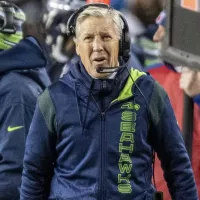
8 months ago Pete Carroll envisions Jeanty & Mostert as 'Thunder and Lightning' in Raiders backfield.
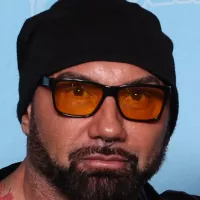
Dave Bautista born David Michael Bautista Jr is an American actor and retired professional wrestler He achieved significant recognition during...

3 months ago Ben Shelton faces Kamil Majchrzak at ATP Basel after Rune's setback: Predictions.
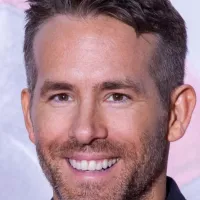
6 months ago Ryan Reynolds Hints at Deadpool Joining Avengers in Cryptic Instagram Post
Popular

Thomas Douglas Homan is an American law enforcement officer who...

William Franklin Graham III commonly known as Franklin Graham is...

Jupiter is the fifth and largest planet from the Sun...

XXXTentacion born Jahseh Dwayne Ricardo Onfroy was a controversial yet...

Instagram is a photo and video-sharing social networking service owned...

Kristi Noem is an American politician who has served as...
